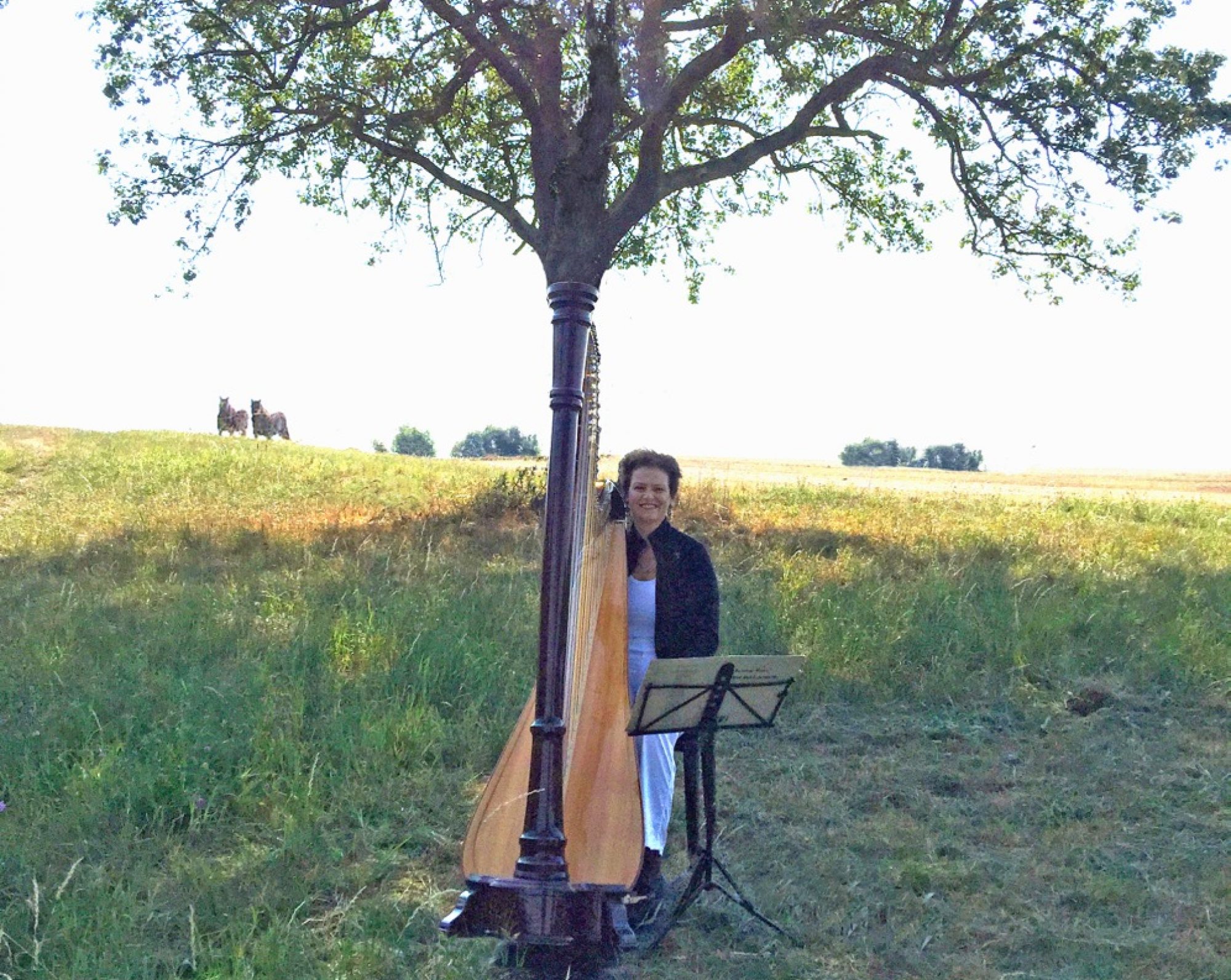Amenability:
In what way does this research question concern me personally?
I have alwaysbeen deeply interested in Renaissance, Baroque and Contemporary music. My real favourite period of harp music is 20th century music, starting with Debussy – as inspired by the harp lessons I had with Pierre Jamet, who has been working with Debussy in his compositions for harp. The 19th Century I always felt reluctant to dig into, however, since I considered the music written for harp too ‘salon-fähig’.
Compared to the works of Bach, Haydn, Schubert, Berlioz, Debussy, Ravel, and Stravinsky (just to name a few of my favourite composers), the compositions by harpist-composers in the long 19th century seemed to me of lesser quality: too idiomatically written for the instrument, not so concerned with structure, and too little personality (too pleasing).
Furthermore, many of these compositions include themes/melodies taken from operas (Parish Alvars, Posse, Dizi, Bochsa) and traditional melodies (Salzedo, Thomas, Grandjany), or are arrangements of pianoworks by the ‘great’ composers of the century like Liszt and Chopin (Renié, Thomas, Grandjany, Salzedo, Posse, Zabel), or are ‘theme & variation’ compositions—where are the idiosyncrasies? Of course, in many ways the 19th Century has been important to the development of the harp both technically and methodically, and especially in France with its many Courts and patrons. These developments accelerated with the French Revolution (1789-1799). In France the harp was mostly considered a ‘court’ instrument, so after the revolution some French players and builders, who were dependent on those courts, went abroad and tried to make new careers (Erard). A harpist who stayed and helped build a new idea, the ‘Conservatoire de Musique,’ was François-Joseph Naderman. Already these two important figures to the harp world (Erard and Naderman) show that both improvement and change were happening and on their way.
Of course these harpist-composers were not the only ones around in that period. The first image of a harpist has been mostly and still is: a beautiful young lady with long blond hair, long dress and playing pleasing music (preferably in a beautiful environment). This seems to be a very persistent attitude towards the harp, since people are still asking me why ‘only women’ play the harp and if I like the music I play (when it is contemporary).
In my career as a harpist I’ve always been trying to let audiences know that the harp is an instrument that has to be considered as seriously as a piano, violin or any other classical instrument. I have performed over 1000 first performances in all kinds of settings, so in this way I do consider myself a ‘modern’ harpist.Therefore I think the most personal way to connect to 19th Century harpist-composers would be to research their way of ‘being modern’ as related to the definition given below:
Definition of the word modern (noun): ‘A person who advocates or practises a departure from traditional styles or values.’
I chose to research the harpist-composer and not the harpist-player in the long 19th Century since there is much more literature about harpist-composers and I would like to think that the harpist-composer could be considered a more all-round musician/harpist. Furthermore I have to teach the written music. I hope to find some confirmation in the literature I am reading as well as through their (harpist-composers) methods and compositions, therefore getting more connected to them, being able to teach their music better, and making their music more inspiring so that students also will get a better understanding of this music (and hopefully have even more fun playing it) since they (students) like to play Romantic repertoires and competitions often put them on their programmes.
Future idea:
I put up this website to organise the harpist-composers that I have been reading about for this research and that I will be reading about in the future. In due time I would like it to serve as a very broad overview /database on which I will give information on harpist-composers from 1600 – present. The information this site will give will focus on how they have been contributing to the development of harp-playing in general.
My research will of course be a much more focused study into a small group of figures/works/time periods within that overview (addressed more specifically to me and my students)
